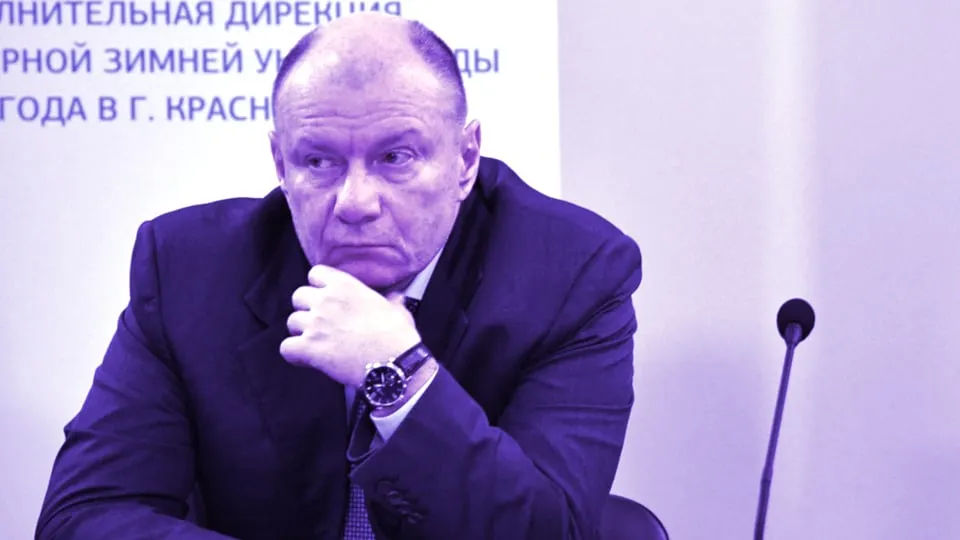Russia's second-richest man believes digital tokens and a central bank digital currency would help the country move forward—and make the current debate in the country regarding cryptocurrency regulation pointless, according to reports.
Business magnate Vladimir Potanin, who is worth $30.4 billion, said that advancement in the world of tokenization would "squeeze unreliable products out of the market," in a Monday Bloomberg interview.
Russia is currently at a deadlock about what to do about cryptocurrency regulation. The country's central bank said last month that Bitcoin mining and transactions should be banned, citing concerns about the amount of energy that these activities consume. But the finance ministry added that it would be "necessary to allow these technologies to develop" and regulation was instead needed.
President Vladimir Putin then called for a compromise—but he did say that Russia has "certain competitive advantages" when it comes to mining cryptocurrency, due to an energy surplus in the country.
Cryptocurrency mining in Russia is a big business. The practice requires large amounts of energy as so-called miners compete to solve complex mathematical problems and earn freshly minted Bitcoin while securing the network. Russian Bitcoin miners provide more than 10% of the computing power to the Bitcoin network. But the country’s authorities have repeatedly talked about restricting the industry.
But Potatin, who is close with President Vladimir Putin, said that the real future in Russia is the tokenization of real-world assets—not decentralized currencies such as Bitcoin and Ethereum.
"Metal coins were replaced by paper money, and then transactions became cashless," Potanin was quoted saying. "Digital financial assets are just the next stage." He reportedly also said that Atomyze, a blockchain company he is invested in which tokenizes physical things like metals, is an example of how digital assets can be valuable.
The tokenization of real world assets puts things like art and even rare clothing on a blockchain network to give people a slice of ownership via digital tokens.
Potanin added that a CBDC, in this case a digital ruble, could also help the country advance. A CBDC is a digital version of a fiat currency (like the US dollar or Russian ruble), backed by a central bank. They are different to cryptocurrencies like Bitcoin and Ethereum, because they are centralized and tightly controlled.
Countries around the world are in different stages of researching the technology. Some countries, like the Bahamas, have already released a digital version of their home currency.
A number of nations have already banned cryptocurrencies like Bitcoin. A report by the Global Legal Research Directorate (GLRD) of the Law Library of Congress, states that nine countries—including China, Egypt and Morocco—have an absolute ban on cryptocurrencies, while another 42 have an implicit ban.

